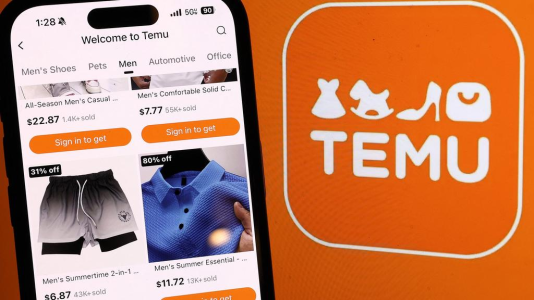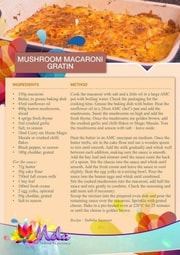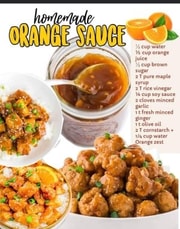Could the bargain auto parts you bought be compromising your car’s safety? Find out now
By
Maan
- Replies 0
The rise of budget-friendly auto parts has sparked concern, particularly when it comes to their safety and quality.
With platforms like Temu offering incredibly cheap car components, some industry experts are sounding the alarm.
What’s really at risk when these parts are installed?
Temu, a Chinese mega-platform offering low-cost products, has expanded its range to target Australian car owners with bargain-priced tools and vehicle parts.
While the platform promises value, experts warn that many of the low-cost components may pose a significant safety risk.
The app features a wide array of automotive parts—from brake pad spreaders and panel clamps to engine components—but with little to no information on their origin, safety testing, or compliance with Australian Design Rules (ADRs).
As Chinese car manufacturers have turned to Australia following regulatory obstacles in Europe, parts suppliers have followed suit, introducing a flood of components into the Australian market.
Despite the growing availability of these parts, government agencies have largely failed to take action.
Federal bodies claimed they were 'monitoring' the situation or suggested that safety regulations fell under the jurisdiction of state departments.
State departments, in turn, argued that their responsibility was limited to ensuring new vehicles met safety standards and that modifications and repairs fell to owners and mechanics.
One major concern with parts sold through Temu is their lack of clear specifications and testing.
Some products are marketed as 'universally applicable,' but experts say they are often cheap imitations that don't meet safety standards.
Parts such as vehicle cooling systems, which are specific to individual makes and models, can cause severe damage if improperly installed.
Installing an unknown component without exact specifications can lead to system failures, overheating, or engine damage.
Several Temu listings feature parts that appear to mimic genuine products from well-known car brands.
For example, a listing for 'For Honda, VTEC Solenoid Car Heat Shield Spool Gasket' seemed to suggest it was a legitimate Honda part, but further investigation revealed it was not.
Although the listing includes a Honda part number, there was no indication of a connection to the company, and the part's origin was listed as 'Zhejiang, China'—a known manufacturing hub but home to numerous unregulated factories.
Temu sold the part for $45, a significant discount compared to the genuine Honda version, which costs around $268.
A Honda spokeswoman said: 'While the images depict a Honda part number, Honda Australia cannot confirm the authenticity of a part advertised based on representations from a third-party supplier/retailer.'
She went on to advise that: 'To ensure ongoing vehicle reliability and safety, Honda Australia strongly recommends using Genuine parts sourced through a Honda Centre.'
In addition to concerns over the parts themselves, social media influencers have helped fuel the demand for Temu's budget auto products.
By showcasing installation tutorials, these influencers have highlighted how easy and cheap it is to modify a vehicle using low-cost Temu products.
One popular video on social media showed a creator using a $13 Temu clamp to realign the panels of a heavily damaged Nissan Patrol, which shocked Nissan Australia.
Source: Youtube/Chur.
A Nissan spokeswoman warned: 'Anything structural or panel wise will definitely impact the safety and operation of the vehicle. We already have challenges with imported and counterfeit parts which are not designed for vehicles compliant with ADR rules and our Australian safety ratings.'
Another social media creator posted a video titled 'TEMU car parts…we test it out,' in which they showcased an assortment of budget-friendly car components.
Source: Youtube/Fink & Co
Items such as jumper cables, wrenches, and steering wheels were demonstrated, alongside plastic clips and fasteners that would typically require OEM parts and proper tools to install safely.
In some cases, these parts have found their way into reputable workshops.
A Queensland-based mechanic, ABD Automotive, known for working on Fords, uploaded a video showing the installation of Temu components, such as wheel nuts, strut kits, and tow receivers on a Ford Ranger.
The Federal Chamber of Automotive Industries (FCAI) has expressed concern about the proliferation of low-cost, untested auto parts, with a spokesperson stating, 'The risks of non-genuine parts are significant. Parallel, salvaged, counterfeit or low-quality aftermarket components are not tested or approved by the vehicle's original manufacturer.'
The FCAI also noted that using non-genuine parts could void warranties and insurance claims, and compromise a vehicle's safety and performance.
The Australian Border Force (ABF) is aware of the counterfeit parts entering the country and conducts risk-based targeting to identify and seize them.
The ABF works closely with manufacturers and rights holders to prevent the sale of counterfeit products, including automotive components.
However, counterfeit parts are often concealed within shipments or falsely declared on import documents, making them difficult to detect.
Some parts, like oil filters and spark plugs, can cause massive engine damage if used in place of genuine components.
Australia's regulations around automotive parts are enforced by a combination of national and state agencies, including the Department of Infrastructure, Transport, Regional Development, Communications and the Arts.
While these agencies oversee the import of new vehicles and some approved components, modifications made after import are typically the responsibility of drivers, mechanics, and state regulators.
The ACCC, for its part, has stated that overseas sellers must comply with Australian Consumer Law, ensuring products are fit for purpose, safe, and durable.
However, when it comes to modifications and aftermarket parts, state authorities, like the Department of Transport and Planning in Victoria, confirmed that it is the driver's responsibility to ensure their vehicle remains roadworthy.
In New South Wales, Transport NSW and Fair Trading also made it clear that drivers and repairers must ensure the parts they use meet Australian safety standards.
Counterfeit car parts have been a long-standing issue in Australia, with examples dating back to 2016, when more than 33,000 counterfeit Toyota and Lexus parts were seized in China.
In response to the growing issue, the FCAI launched the 'Genuine is Best' campaign, urging consumers to avoid counterfeit parts and stick to genuine or reputable aftermarket options.
Ingrid Johnston, CEO of the Australasian College of Road Safety (ACRS), echoed these concerns, stating, 'Anything that is substandard and impacts safety outcomes is a concern to the road safety community.'
Temu has faced scrutiny before, especially regarding the sale of substandard products.
CHOICE, a consumer advocacy group, tested products from Temu in 2024, finding that many failed to meet Australian safety standards, including button battery-operated items.
Despite this, the products remained available for sale on the platform.
The European Commission also launched an investigation into Temu in 2024 under the Digital Service Act (DSA), citing concerns over illegal products, including counterfeit goods.
Experts agree that stronger oversight is needed to ensure Australians are not putting their safety at risk when purchasing automotive parts from overseas platforms like Temu.

With so many affordable car parts flooding the market, do you think the risks are worth the savings? Share your thoughts with us in the comments.
With platforms like Temu offering incredibly cheap car components, some industry experts are sounding the alarm.
What’s really at risk when these parts are installed?
Temu, a Chinese mega-platform offering low-cost products, has expanded its range to target Australian car owners with bargain-priced tools and vehicle parts.
While the platform promises value, experts warn that many of the low-cost components may pose a significant safety risk.
The app features a wide array of automotive parts—from brake pad spreaders and panel clamps to engine components—but with little to no information on their origin, safety testing, or compliance with Australian Design Rules (ADRs).
As Chinese car manufacturers have turned to Australia following regulatory obstacles in Europe, parts suppliers have followed suit, introducing a flood of components into the Australian market.
Despite the growing availability of these parts, government agencies have largely failed to take action.
Federal bodies claimed they were 'monitoring' the situation or suggested that safety regulations fell under the jurisdiction of state departments.
State departments, in turn, argued that their responsibility was limited to ensuring new vehicles met safety standards and that modifications and repairs fell to owners and mechanics.
One major concern with parts sold through Temu is their lack of clear specifications and testing.
Some products are marketed as 'universally applicable,' but experts say they are often cheap imitations that don't meet safety standards.
Parts such as vehicle cooling systems, which are specific to individual makes and models, can cause severe damage if improperly installed.
Installing an unknown component without exact specifications can lead to system failures, overheating, or engine damage.
Several Temu listings feature parts that appear to mimic genuine products from well-known car brands.
For example, a listing for 'For Honda, VTEC Solenoid Car Heat Shield Spool Gasket' seemed to suggest it was a legitimate Honda part, but further investigation revealed it was not.
Although the listing includes a Honda part number, there was no indication of a connection to the company, and the part's origin was listed as 'Zhejiang, China'—a known manufacturing hub but home to numerous unregulated factories.
Temu sold the part for $45, a significant discount compared to the genuine Honda version, which costs around $268.
A Honda spokeswoman said: 'While the images depict a Honda part number, Honda Australia cannot confirm the authenticity of a part advertised based on representations from a third-party supplier/retailer.'
She went on to advise that: 'To ensure ongoing vehicle reliability and safety, Honda Australia strongly recommends using Genuine parts sourced through a Honda Centre.'
In addition to concerns over the parts themselves, social media influencers have helped fuel the demand for Temu's budget auto products.
By showcasing installation tutorials, these influencers have highlighted how easy and cheap it is to modify a vehicle using low-cost Temu products.
One popular video on social media showed a creator using a $13 Temu clamp to realign the panels of a heavily damaged Nissan Patrol, which shocked Nissan Australia.
Source: Youtube/Chur.
A Nissan spokeswoman warned: 'Anything structural or panel wise will definitely impact the safety and operation of the vehicle. We already have challenges with imported and counterfeit parts which are not designed for vehicles compliant with ADR rules and our Australian safety ratings.'
Another social media creator posted a video titled 'TEMU car parts…we test it out,' in which they showcased an assortment of budget-friendly car components.
Source: Youtube/Fink & Co
Items such as jumper cables, wrenches, and steering wheels were demonstrated, alongside plastic clips and fasteners that would typically require OEM parts and proper tools to install safely.
In some cases, these parts have found their way into reputable workshops.
A Queensland-based mechanic, ABD Automotive, known for working on Fords, uploaded a video showing the installation of Temu components, such as wheel nuts, strut kits, and tow receivers on a Ford Ranger.
The Federal Chamber of Automotive Industries (FCAI) has expressed concern about the proliferation of low-cost, untested auto parts, with a spokesperson stating, 'The risks of non-genuine parts are significant. Parallel, salvaged, counterfeit or low-quality aftermarket components are not tested or approved by the vehicle's original manufacturer.'
The FCAI also noted that using non-genuine parts could void warranties and insurance claims, and compromise a vehicle's safety and performance.
The Australian Border Force (ABF) is aware of the counterfeit parts entering the country and conducts risk-based targeting to identify and seize them.
The ABF works closely with manufacturers and rights holders to prevent the sale of counterfeit products, including automotive components.
However, counterfeit parts are often concealed within shipments or falsely declared on import documents, making them difficult to detect.
Some parts, like oil filters and spark plugs, can cause massive engine damage if used in place of genuine components.
Australia's regulations around automotive parts are enforced by a combination of national and state agencies, including the Department of Infrastructure, Transport, Regional Development, Communications and the Arts.
While these agencies oversee the import of new vehicles and some approved components, modifications made after import are typically the responsibility of drivers, mechanics, and state regulators.
The ACCC, for its part, has stated that overseas sellers must comply with Australian Consumer Law, ensuring products are fit for purpose, safe, and durable.
However, when it comes to modifications and aftermarket parts, state authorities, like the Department of Transport and Planning in Victoria, confirmed that it is the driver's responsibility to ensure their vehicle remains roadworthy.
In New South Wales, Transport NSW and Fair Trading also made it clear that drivers and repairers must ensure the parts they use meet Australian safety standards.
Counterfeit car parts have been a long-standing issue in Australia, with examples dating back to 2016, when more than 33,000 counterfeit Toyota and Lexus parts were seized in China.
In response to the growing issue, the FCAI launched the 'Genuine is Best' campaign, urging consumers to avoid counterfeit parts and stick to genuine or reputable aftermarket options.
Ingrid Johnston, CEO of the Australasian College of Road Safety (ACRS), echoed these concerns, stating, 'Anything that is substandard and impacts safety outcomes is a concern to the road safety community.'
Temu has faced scrutiny before, especially regarding the sale of substandard products.
CHOICE, a consumer advocacy group, tested products from Temu in 2024, finding that many failed to meet Australian safety standards, including button battery-operated items.
Despite this, the products remained available for sale on the platform.
The European Commission also launched an investigation into Temu in 2024 under the Digital Service Act (DSA), citing concerns over illegal products, including counterfeit goods.
Experts agree that stronger oversight is needed to ensure Australians are not putting their safety at risk when purchasing automotive parts from overseas platforms like Temu.
Key Takeaways
- Temu's low-cost auto parts may not meet safety standards and pose significant risks.
- Many products are marketed as universal but lack clear specifications or testing.
- Social media influencers are driving demand for cheap Temu auto parts, but safety experts warn against their use.
- Australian authorities are concerned about counterfeit and untested parts entering the market.
With so many affordable car parts flooding the market, do you think the risks are worth the savings? Share your thoughts with us in the comments.








